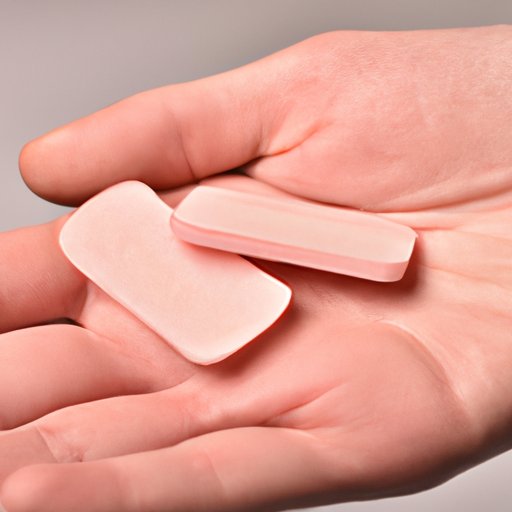
Introduction
Blisters are a common skin problem experienced by many people of all ages. They are fluid-filled pockets that form on the skin due to friction, heat, or certain medical conditions. Blisters can be painful and inconvenient, but they are generally not serious and can heal quickly if they are cared for properly. In this article, we will explore some natural remedies, prevention tips, and proper care techniques to help heal your blisters fast.
Natural Remedies for Treating Blisters
Before you run to the drugstore to buy an expensive blister treatment, there are some natural remedies you can try that may provide relief and help heal blisters faster. Natural remedies are preferred by many people because they are often less harsh on the skin than chemical treatments and have fewer side effects.
Aloe vera is a plant that has been used for centuries to treat various skin problems, including blisters. Aloe vera has anti-inflammatory and antibacterial properties that can help to reduce pain and inflammation associated with blisters and promote healing. To use aloe vera, break off a leaf and apply the gel directly to the blister. Repeat this process several times a day until the blister heals.
Coconut oil is another natural remedy that has been shown to help heal blisters. Coconut oil moisturizes the skin and helps to reduce inflammation, which can aid in blister healing. To use coconut oil, apply a small amount to the blister and cover it with a bandage. Repeat this process every few hours until the blister heals.
Tea tree oil has antiseptic and anti-inflammatory properties that can help to reduce swelling and redness associated with blisters. To use tea tree oil, dilute a few drops in a carrier oil, such as coconut oil or olive oil, and apply the mixture to the blister. Cover with a bandage and repeat this process every few hours until the blister heals.
Protection and Prevention
Prevention is key when it comes to managing blisters. Here are some tips for preventing blisters:
- Wear comfortable shoes that fit well. Shoes that are too tight or too loose can cause blisters.
- Use talcum powder on your feet to reduce friction.
- Apply protective padding, such as moleskin or blister pads, to areas that are prone to blister formation.
- Wear gloves when doing manual work that involves using your hands.
Once you have a blister, it’s important to protect it so that it can heal. You can protect a blister by covering it with a bandage or blister pad. Avoid wearing shoes or doing activities that may cause further friction or irritation to the blister. If the blister is in an area that is difficult to bandage, consider using a liquid bandage.
Proper Blister Care
To help your blisters heal quickly, it’s important to care for them properly. Here are some tips:
- Keep the blister clean and dry.
- Avoid popping the blister. Popping a blister can increase the risk of infection and slow down the healing process.
- If the blister does pop, clean the area with warm water and soap and cover with a bandage.
- Change your bandage daily and whenever it gets wet or dirty.
- If the blister is painful, take an over-the-counter painkiller, such as ibuprofen or acetaminophen.
Home Remedies for Pain Relief
In addition to over-the-counter painkillers, there are some home remedies that may help to reduce pain associated with blisters:
- Apply a warm compress to the blister for 10-15 minutes at a time, a few times a day.
- If the blister is swollen, elevate the affected area to reduce swelling and discomfort.
- Apply an ice pack wrapped in a towel for 10-15 minutes at a time, a few times a day.
Medical Treatment for Severe Cases
Most blisters will heal on their own with proper care and time. However, in severe cases, medical treatment may be necessary. If your blister is large, painful, or shows signs of infection, such as pus, redness, or warmth, consider seeing a doctor. Your doctor may need to drain the blister and prescribe antibiotics to prevent or treat infection.
Conclusion
Blisters can be a painful and inconvenient problem, but with the right care and treatment, they can heal quickly. Natural remedies, prevention tips, and proper care techniques can all help to speed up the healing process. Remember to consult your doctor if your blister is severe or shows signs of infection. By taking preventive measures and seeking medical attention when needed, you can keep your skin healthy and happy.





